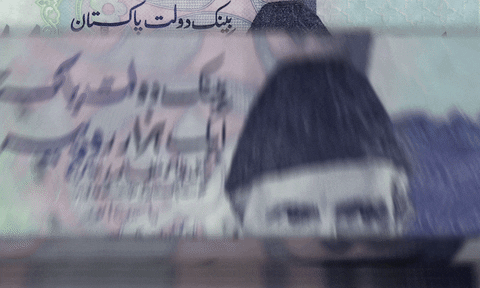Mega Karachi project

The Executive Committee of National Economic Council (NEC) has approved a project titled Competitive and Livable City Karachi at an estimated cost of 33.6 billion rupees. Official documents reveal that the World Bank would pick up around 96 percent of the cost of the project. The World Bank website indicates the total project cost at 240 million dollars (the exchange rate used is 141 rupees to the dollar - the rate at the time of Board approval), the lenders are the International Bank for Reconstruction and Development (IBRD) and the International Development Association (IDA), with scheduled completion by 2024 (IDA complements the World Bank's arm - the IBRD). Repayment would be in 25 years, with a six-year grace period and the project is designed to modernize the urban property tax system, incentivize private sector participation in service delivery, enhance ease of doing business, and improve solid waste management. Around 35 percent of the total project cost is earmarked for connectivity and urban roads, 20 percent for urban and storm drainage, 15 percent for parks and public spaces and 30 percent for public facilities, including health and education infrastructure, public toilets, buildings and markets, fire and disaster management. In other words, the project is extremely ambitious for the allocation made.
Karachi is Pakistan's largest city with a population of 16 million and is acknowledged as Pakistan's financial and economic hub. It is by far the largest contributor to the country's revenues and the city dominates "the economic landscape of Sindh with nearly all of the province's industrial and service economy and the majority of its labour force...(and) continues to be the engine of economic growth for the country, given its size, location and industrial and human capital," the World bank website notes.
Recent domestic media reports have highlighted Karachi's disturbingly major shortcomings in the provision of social and physical infrastructure to its residents with charges of corruption and misappropriation routinely levelled by the two major political stakeholders of the city against each other - the Pakistan People's Party which has been in power in the province for the past 11 consecutive years and the Muttahida Qaumi Movement - Pakistan (MQM-P) that has been a partner with either the provincial and/or the federal government for decades - civilian or military. In this political mix, the Pakistan Tehreek-i-Insaaf has jumped in after it won a good number of seats in Karachi in the last general elections and yet the Karachiites continue to await some positive outcome of the change in their voting patterns in selecting their national and provincial representatives.
The World Bank notes that "the city's livability and competitiveness have declined. It now ranks 137 out of 140 cities globally for livability. In the recent decades, access to basic infrastructure and services has declined. Nearly half its residents live in informal settlements (katchi abadis), only half the city's water demands are met;" and cites the Karachi City Diagnostic and Transformation Strategy which has identified infrastructure gaps of over 9 billion dollars. Institutional strengthening and investments aiming to enhance livability, competitiveness and sustainability have emerged as priorities for Karachi.
Though the project meets less than 3 percent of the city's total requirements it is a step in the right direction. However, one would hope that provincial and federal governments develop ownership of the city and meet the large shortfall. In this context, it is hoped that provincial finance commissions are established with participation from districts and divisions to enable an agreement on a more equitable revenue distribution within a province.






















Comments
Comments are closed.